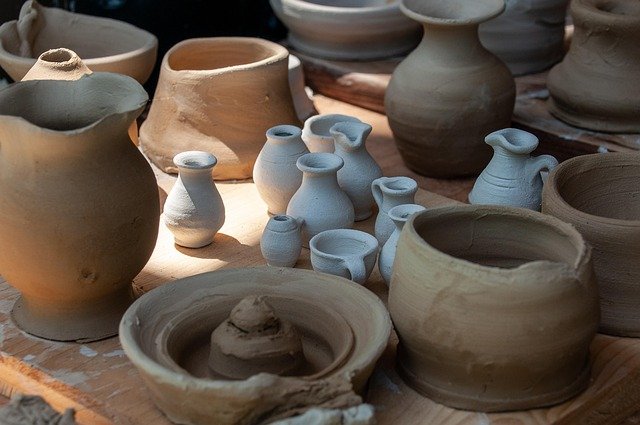Slow Dating: Mindful Connections in a Fast-Paced World
Dating culture has shifted dramatically in recent years, with a countermovement emerging against the rapid-swipe mentality of modern romance. This intentional approach, known as slow dating, encourages deeper connections through meaningful interactions, careful selection, and prioritizing quality over quantity. Increasingly, individuals are rediscovering the value of patience and presence in building relationships that truly resonate. Read below to explore how this thoughtful approach is reshaping the landscape of modern relationships.

The Digital Dating Paradox
The advent of dating apps promised to revolutionize how people find love, offering unprecedented access to potential partners. However, this technological evolution introduced unexpected challenges to meaningful connection. Research conducted by the Pew Research Center indicates that while 30% of U.S. adults have used dating apps, many report feeling overwhelmed by choices and experiencing “dating fatigue.” This phenomenon creates a paradox where increased options lead to decreased satisfaction and connection quality. The endless scrolling through profiles often reduces individuals to commodities in a marketplace of potential matches, with decisions based on split-second impressions rather than substance.
This environment has fostered a culture of disposability in relationships, where minor incompatibilities lead to quick dismissals rather than communication and growth. Dating app algorithms, designed to keep users engaged with the platform, sometimes prioritize quantity of matches over compatibility depth. Psychological studies suggest this overwhelming choice can trigger decision paralysis, where having too many options makes it harder to commit to any single person. The digital interface also removes many natural social cues that traditionally helped people gauge compatibility, creating a disconnect between online perception and in-person reality.
Origins of the Slow Dating Movement
Slow dating emerged as a direct response to digital dating burnout, drawing inspiration from broader cultural movements that emphasize mindfulness and intentionality. The concept shares philosophical roots with the slow food movement, which began in Italy during the 1980s as resistance to fast food culture. Both movements prioritize quality experiences over convenience and speed, valuing depth over breadth of experience. Sociologists point to increasing dissatisfaction with superficial connections as a catalyst for this cultural shift, with many individuals seeking more substantial relationships after experiencing the limitations of rapid-fire dating.
Early adopters of slow dating were often those who had experienced prolonged disappointment with conventional dating methods, finding themselves caught in cycles of brief connections that failed to develop into meaningful relationships. Dating coaches and relationship therapists began advocating for more intentional approaches around 2018, when the term “slow dating” started appearing in mainstream media. The movement gained significant momentum following the COVID-19 pandemic, when lockdowns forced people to reconsider their approach to relationship formation, emphasizing quality virtual interactions over quick physical meetings. This period of forced slowdown prompted many to reassess what they truly valued in potential partners.
Principles and Practices of Mindful Connection
At its core, slow dating emphasizes quality of connection over quantity of interactions. Practitioners typically limit themselves to engaging with one or two potential partners at a time, allowing for deeper exploration of compatibility before moving on. This approach stands in stark contrast to the multi-dating strategy common on apps, where users might maintain conversations with dozens of prospects simultaneously. Research published in the Journal of Social and Personal Relationships suggests that focusing attention on fewer potential partners correlates with higher relationship satisfaction when connections do form.
The practice incorporates intentional pacing, where physical and emotional intimacy develop gradually, allowing authentic connection to precede commitment. Many slow daters deliberately extend the getting-to-know-you phase, incorporating meaningful conversations about values, goals, and life philosophies before deciding to pursue a relationship. This often involves creative date formats designed to foster genuine conversation—activities that reveal character and compatibility rather than simply entertaining. Practitioners report asking more substantive questions early on, moving beyond small talk to discussions about life experiences, personal growth, and future aspirations.
Psychological Benefits and Relationship Outcomes
Psychologists have identified several benefits associated with the slow dating approach. By reducing the cognitive load of managing multiple potential relationships, individuals can be more present and attentive with each person they meet. This focused attention allows for better assessment of compatibility across various dimensions including values, communication styles, and life goals. Research from relationship psychologists suggests that relationships formed through more deliberate processes tend to have stronger foundations, as partners have already navigated meaningful conversations and revealed more authentic aspects of themselves.
The slow approach also reduces the “grass is greener” mentality that pervades modern dating culture, where the possibility of finding someone better with just one more swipe can undermine commitment to promising connections. By investing more deeply in fewer connections, individuals develop a clearer understanding of what they truly want in partnerships rather than being distracted by superficial attributes. Attachment theorists note that the gradual building of trust through consistent interaction creates stronger emotional bonds compared to relationships that accelerate quickly then plateau or deteriorate. Studies tracking relationship longevity show promising correlations between intentional early-stage dating practices and relationship satisfaction at the one-year mark.
Technological Adaptations and Cultural Response
Dating platforms have begun responding to the growing interest in more meaningful connections by implementing features that support slower, more intentional interactions. Some apps now limit the number of matches users can pursue simultaneously, while others introduce conversation prompts designed to elicit substantive dialogue. Certain platforms deliberately slow the matching process, releasing only a handful of curated potential matches daily rather than providing unlimited access to profiles. These changes reflect growing market awareness that many users seek quality over quantity in their dating experiences.
New services specifically catering to slow dating have emerged, offering carefully vetted matches and structured communication processes that encourage depth of connection. Some facilitate in-person events designed for meaningful conversation rather than rapid assessment of attraction. Cultural media has increasingly highlighted the benefits of slowing down romantic pursuits, with relationship experts advocating patience and presence over efficiency and expediency. The shift has sparked broader conversations about connection in the digital age, with many questioning whether technology has fundamentally altered how humans form attachments and build intimate relationships.
Balancing Mindfulness with Modern Realities
While slow dating offers compelling benefits, practitioners must navigate integrating these principles into contemporary life. Finding balance between intentionality and practicality presents challenges in a society that often values efficiency and immediate results. Some critics suggest that excessive selectivity could lead to missed opportunities, arguing that chemistry sometimes develops unexpectedly with people who might not initially seem compatible on paper. Relationship researchers acknowledge the importance of remaining open to possibility while still maintaining standards and boundaries.
Adapting slow dating principles to individual circumstances requires personalization rather than rigid adherence to specific rules. The approach may look different depending on life stage, previous relationship experiences, and personal goals. For some, it means limiting app usage to certain days of the week to prevent dating from consuming their lives. For others, it involves establishing clear personal guidelines about physical intimacy timelines that align with their emotional readiness. What remains consistent across variations is the underlying philosophy: that meaningful connections deserve time and attention to develop naturally, without artificial acceleration or pressure to commit before genuine compatibility is established.






